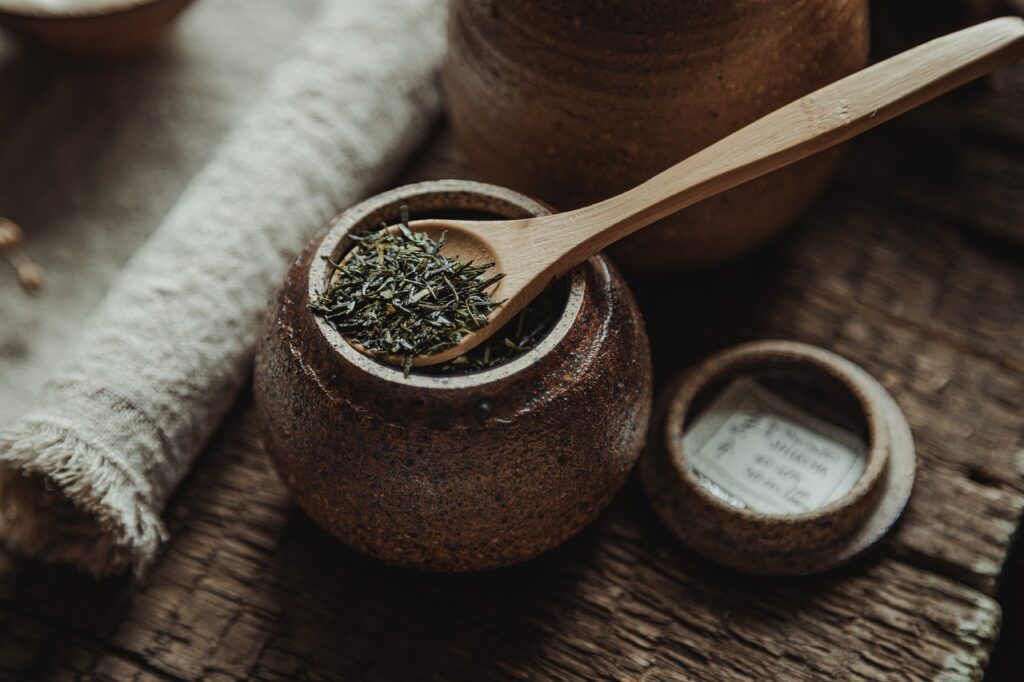7 Ayurvedic tips for Stress Management
In today’s fast-paced world, stress has become an ever-present companion, affecting our physical, emotional, and mental well-being. However, amidst the chaos, Ayurveda, an ancient holistic healing system from India, offers tools for stress management. Stress management has far more benefits than feeling calm. It also is essential in weight management, sugar metabolism and cholesterol management. By aligning ourselves with the principles of Ayurveda, we can regain balance, inner peace, and vitality. In this blog post, we will delve into the timeless Ayurvedic practices and lifestyle adjustments and get ayurvedic tips for stress management. We will feel empowered to navigate stress and embrace a harmonious life.
Good stress versus Bad stress

Stress, often perceived as a negative force, is an essential part of our lives. It plays a dynamic role in our growth. While it can be overwhelming at times, it’s essential to recognize that stress is not all bad. In fact, stress can be a catalyst for positive change and personal development. Stress is our body’s natural response to various challenges, be it a tight deadline, an important presentation, or an unexpected life event. It is an evolutionary mechanism that has helped our ancestors survive in demanding situations and continues to serve a vital purpose in our lives.
When we experience stress, our bodies release hormones like adrenaline and cortisol, preparing us to face threats or challenges head-on. This “fight or flight” response is a remarkable built-in defense system that boosts our focus, alertness, and physical capabilities. Moreover, stress can be a powerful motivator. It pushes us out of our comfort zones, encouraging us to embrace new opportunities. Without stress, we might become stagnant and lack the drive to achieve our goals.
Furthermore, stress can enhance our empathy and compassion towards others. When we go through stressful experiences, we gain a deeper understanding of what others might be facing, making us more supportive and empathetic towards their struggles.
However, it’s crucial to acknowledge that prolonged and overwhelming stress can have adverse effects on our health and well-being. Chronic stress can lead to physical and emotional exhaustion, negatively impacting our immune system, sleep patterns, and mental health. That’s why it’s essential to practice stress management techniques and seek support when needed. Let’s reframe our relationship with stress and use it as a tool to shape a more resilient and fulfilling life journey!
Understanding Stress in Ayurveda
Ayurveda defines health as the capacity to handle stress with ease. In Ayurveda, stress is viewed as a manifestation of imbalances within the body’s three vital energies, known as the doshas – Vata, Pitta, and Kapha. When these doshas are disrupted, it leads to physical and emotional strain. For example, Vata imbalance results in anxiety and restlessness, Pitta imbalance triggers irritability and anger, while Kapha imbalance leads to lethargy and emotional withdrawal. Recognizing which dosha is dominant in our stress response is crucial for effective stress management.
A randomized controlled trial conducted on individuals experiencing moderate stress and anxiety revealed significant improvements after an Ayurvedic intervention. The study, published in the Journal of Alternative and Complementary Medicine, found that participants who received Ayurvedic therapies, including herbal supplements, abhyanga (self-massage), and pranayama, showed a notable reduction in stress and anxiety levels compared to the control group.

Tip 1:Daily Routines (Dinacharya) for Stress Relief
One of the best ayurvedic tip for stress management is daily routine. Ayurveda emphasizes the importance of a consistent daily routine (dinacharya) to anchor our days amidst the unpredictability of life. Early mornings are considered auspicious, as it aligns with the hour of Bhraman, or the sattvic hour. Imagine a beautiful garden filled with vibrant flowers, lush greenery, and a sense of serenity that instantly lifts your spirits. That feeling of peace and contentment is like Satva (pronounced “satt-va”) in Ayurveda! Satva is one of the three fundamental qualities or “gunas” in Ayurvedic philosophy. It represents purity, clarity, and harmony. When Satva is dominant, it brings a sense of calmness and balance to our body, mind, and emotions.
You can also think of it this way: when you eat nourishing, wholesome foods that make you feel light and energetic, and when your mind is clear and focused, that’s the influence of Satva. It’s like having a clear blue sky inside you, where the clouds of stress and negativity have parted. Rising before sunrise and incorporating practices like oil pulling, tongue scraping, and meditation help establish a soothing morning ritual.
Tip 2: Mindful Eating for Nourishment
Ayurveda recognizes that our diet directly influences our mental state. Avoiding processed foods, caffeine, and excessive sugars is vital for reducing stress. Instead, embrace a balanced diet that includes whole grains, fresh vegetables, and nourishing spices, like dried ginger, coriander, cumin, fennel, saffron. It can pacify aggravated doshas and promote mental clarity.
Tip 3: Adaptogens and Herbal Remedies
Ayurvedic practitioners recommend adaptogenic herbs like Ashwagandha, Brahmi, and Tulsi to combat stress effectively. These herbs possess natural calming properties and help the body adapt to stressors more efficiently. Additionally, Ayurvedic practitioners may suggest herbal formulations tailored to individual doshic imbalances. Be careful using ashvagandha though, as it is heating and heavy to digest. Make sure to speak to an ayurvedic practitioner before using it.

Tip 4: Abhyanga (Self-Massage) for Relaxation

Abhyanga, the practice of self-massage with warm oil, is an amazing tipd for stress management. It is a potent stress-relieving technique in Ayurveda. The rhythmic strokes not only nourish the skin but also calm the nervous system and promote relaxation. Massaging specific points on the body (marma points) can further release blocked energy and emotional tension. I found this amazing video that describes how to practice self-abhyanga. Check it out. Regarding abhyanga, it is important to shower maximum 30 minutes after applying the oil. If you leave the oil for too long, it can create blockages in the body, and make you feel more congested and heavy.
Tip 5: Yoga and Pranayama
The inseparable link between Ayurveda and Yoga shines through in their mutual emphasis on breath (prana). Incorporating yoga asanas and pranayama (breathing exercises) into our daily routine can create harmony within the mind and body, reducing stress levels significantly. Here is a simple video that shows a flow of diverse breathing exercises that take you from stressed to relaxed in 10 minutes. Try this ayurvedic tip and let me know how it went.
Tip 6: Ayurvedic Sleep Rituals

Adequate and restful sleep is essential for stress management. Ayurveda offers bedtime rituals, such as using calming essential oils, drinking warm milk with spices like nutmeg, and winding down with gentle activities before sleep to promote deep and rejuvenating rest. Also, try to go to bed before 10pm. Around the 10:00pm hour, the cleansing and healing process induced by Pitta occurs. It is important to allow the body to reset so that it can heal properly.
Tip 6: Disconnect to Reconnect
Modern life bombards us with constant digital stimuli, contributing to stress and anxiety. Ayurvedic wisdom encourages disconnecting from technology regularly, embracing silence, and spending time in nature to nourish the senses and soothe the mind.
Tip 7: Ayurvedic Mindfulness and Meditation
Ayurvedic mindfulness practices involve staying present in the moment and cultivating gratitude. Regular meditation enhances self-awareness and reduces mental clutter, creating a calm space within, even amid chaos. You can install an app on your phone, or an alarm, that will remind you to breathe and meditate. Here are some apps you can look at:
Headspace: Headspace is one of the most popular meditation apps, offering guided meditations, sleep sounds, and mindfulness exercises. It’s suitable for both beginners and experienced meditators, with various themed meditation sessions to address specific needs like stress, focus, and sleep.
Calm: Calm provides a diverse collection of guided meditations, sleep stories, music for relaxation, and breathing exercises. The app’s soothing interface and calming content make it a top choice for those seeking serenity and improved sleep.
Insight Timer: Insight Timer is a free meditation app with an extensive library of guided meditations from various teachers worldwide. It also offers customizable meditation timers, ambient sounds, and a community feature to connect with fellow meditators.
10% Happier: 10% Happier focuses on making meditation accessible to skeptics and busy individuals. The app includes guided sessions, practical teachings, and interviews with mindfulness experts to demystify meditation and its benefits.
Aura: Aura is designed to cater to your specific needs and emotions. The app offers personalized 3-minute guided meditations based on your mood, as well as relaxation exercises and life coaching sessions.
Buddhify: Buddhify is perfect for people on the go, offering a wide range of guided meditations and mindfulness exercises that can be used during different activities like walking, commuting, and working out.
Stop, Breathe & Think: This app encourages users to check in with their emotions and offers personalized meditation recommendations based on their current mental state. It’s ideal for those looking for a more tailored meditation experience.
Smiling Mind: Smiling Mind is a free app that primarily targets children and young adults but is suitable for all ages. It offers mindfulness exercises and meditations tailored to different age groups and life situations.
Sattva: Sattva is an app that combines meditation with ancient chants and mantras to create a holistic meditation experience. It also provides tracking features to monitor your meditation progress over time.
Simple Habit: Simple Habit offers guided meditations led by mindfulness experts, specifically designed for busy people and those dealing with stress and anxiety
In the pursuit of managing stress in modern life, Ayurveda offers us a treasure trove of wisdom that transcends time. By honoring our unique doshic constitution, embracing daily routines, nourishing ourselves with wholesome foods, and integrating mindful practices, we can find solace and resilience in the face of life’s challenges. Let us embrace Ayurvedic wisdom and embark on a journey towards holistic well-being, where stress becomes an opportunity for growth and transformation.